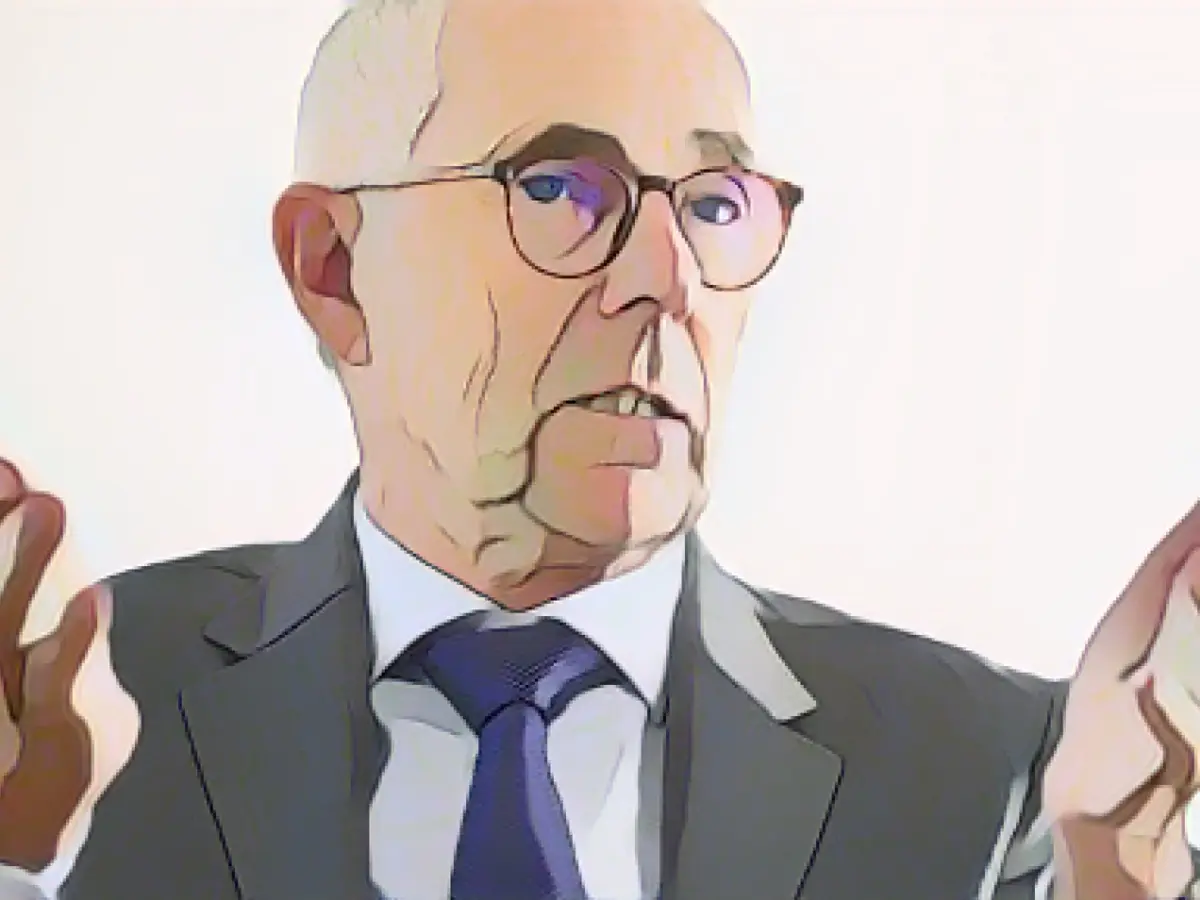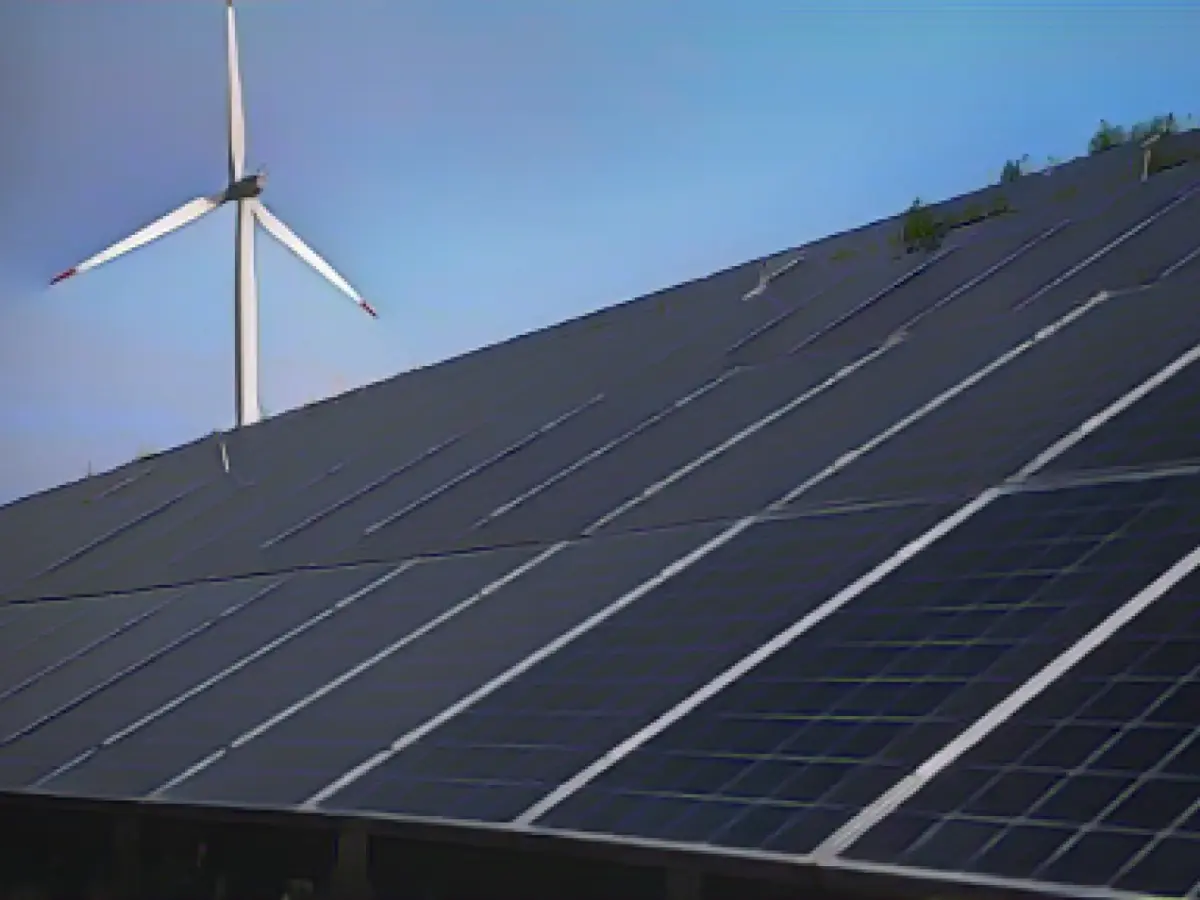Higher Energy Bills on the Horizon for German Families and Businesses
The looming threat of skyrocketing electricity prices is a cause for concern for both households and businesses in Germany. This is due to the potential cancellation of a federal subsidy for grid fees worth billions. This subsidy, planned by the SPD, Green, and FDP coalition, is in jeopardy following the budget ruling by the Federal Constitutional Court.
Kerstin Andreae, Chairwoman of the German Association of Energy and Water Industries (BDEW), voiced her worries about the impact on consumers, stating that an affordable electricity supply is crucial, especially in times of uncertainty from a socio-political perspective. Peter Adrian, President of the German Chamber of Industry and Commerce (DIHK), echoed these sentiments, warning of potential burdens for the German economy.
Without the subsidy, end-user prices are expected to spike significantly. Kerstin Andreae, in her conversation with the German Press Agency, highlighted the importance of signaling consistency and reliability to customers after the extreme price increases in energy last year.
The German government had planned a federal subsidy of up to 5.5 billion euros for the coming year to cover transmission grid costs, to be sourced from the Economic Stabilization Fund (WSF). However, the budget ruling has forced the federal government to dissolve the WSF by the end of the year, making it difficult to fund the subsidy from the core budget.
The 2024 budget negotiations within the traffic light coalition could decide the fate of the subsidy in the coming days. Christian Lindner, Finance Minister of the FDP, mentioned the need to patch a 17 billion euro hole in the federal budget. The Federal Constitutional Court's nullification of the reallocation of 60 billion euros from the 2021 budget to the Climate and Transformation Fund (KTF), intended to improve climate protection and modernize the economy, has torn a gaping hole in the core budget.
The potential discontinuation of the subsidy would trigger a chain reaction in the energy industry value chain. According to Kerstin Andreae, if transmission grid fees rise, distribution grid operators will need to increase their fees. In turn, energy suppliers would adjust their prices already announced, possibly impacting customers as soon as possible.
According to Garrett Sussmann, an energy analyst from Verivox, a family with a 4,000 kWh electricity consumption would incur additional annual costs of around €100 without the subsidy. LichtBlick, a green electricity provider, anticipates an additional burden of almost 170 euros for a household with a 4000 kWh annual consumption if the federal subsidy is abolished.
The energy crisis continues to push electricity prices significantly above their previous levels. Kerstin Andreae believes that the Bundestag was correct in capping transmission grid fees and thereby curbing end-customer prices. She also highlighted the necessity of preserving the promised subsidization of transmission grid fees that the electricity grid operators have already factored into their grid fees.
The German government needs to balance its commitments while providing financial relief for both industry and households. According to DIHK President Adrian, industrial projects and broad-based grid fees and electricity tax relief are equally essential to safeguard the entire industrial value chain.
Enrichment Data
Higher electricity bills could affect both households and businesses in significant ways:
- Increased Operational Costs: Companies would face higher energy costs, which could impact their profitability and competitiveness. This might result in higher prices for goods and services, potentially affecting consumers and the overall economy.
- Potential Business Closures: Energy-intensive industries might struggle to sustain operations due to high energy costs, leading to potential business closures or reduced operations. This could result in job losses and reduced economic growth.
- Slower Transition to Renewable Energy: The high and increasing costs of grid fees could discourage investment in renewable energy projects, potentially slowing down the transition to a more sustainable energy system.
- Environmental Impact: The increased cost of electricity could hinder the transition to renewable energy sources, potentially exacerbating climate change and environmental degradation.
- Energy Poverty: For households, the additional burden could lead to energy poverty, where people struggle to afford basic energy services. This could adversely affect their health and well-being.








